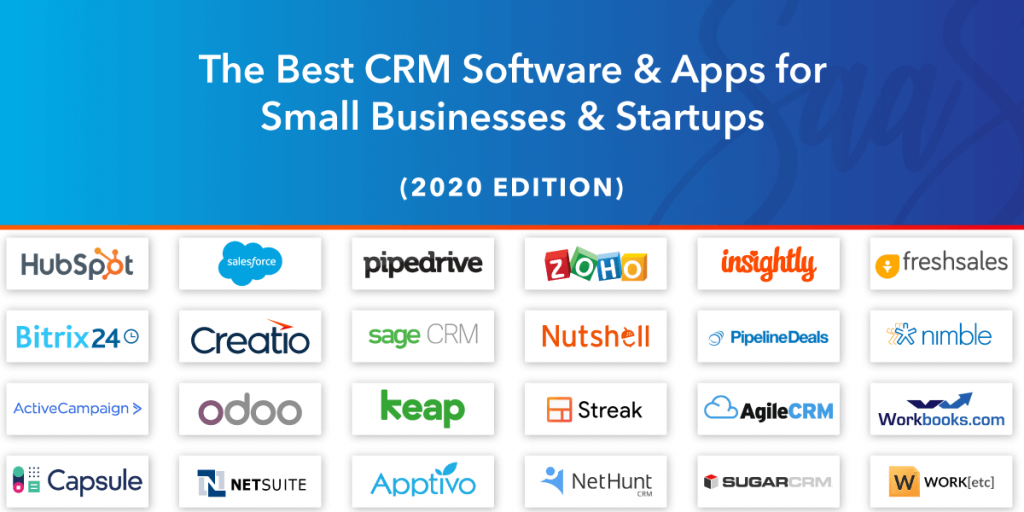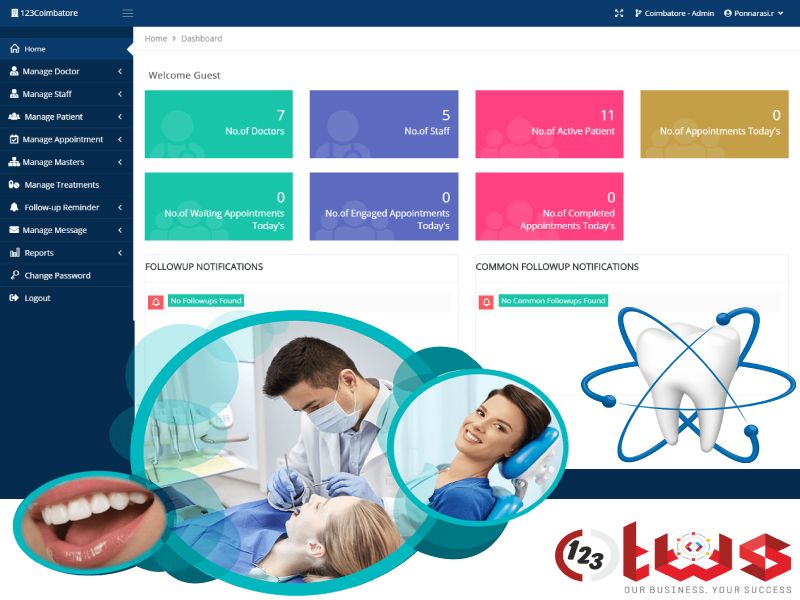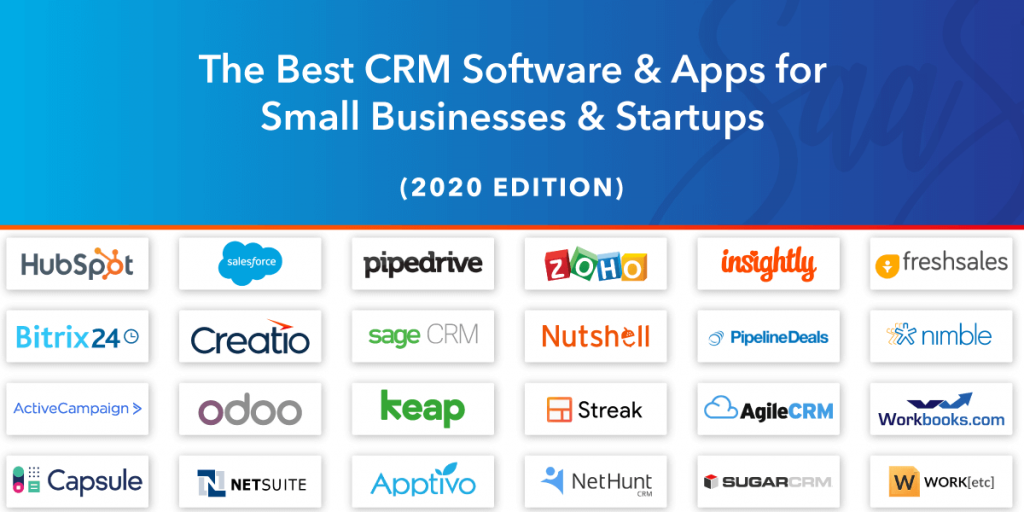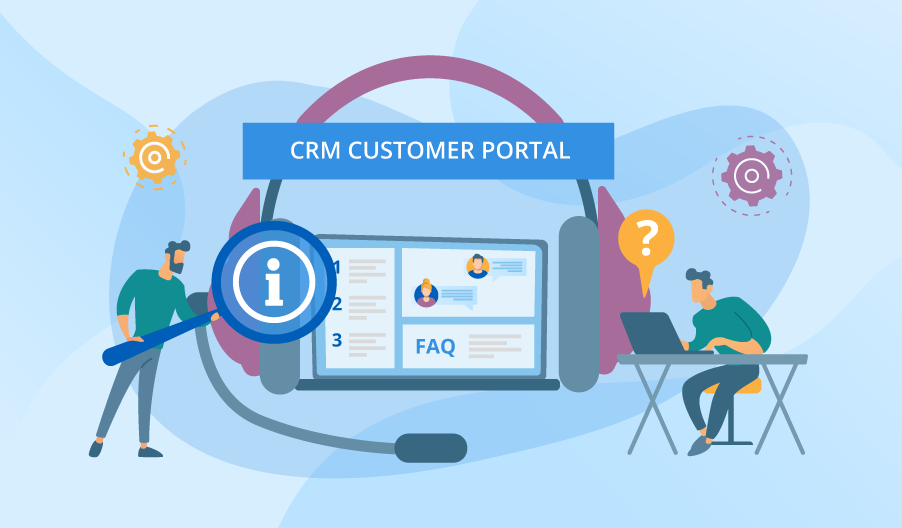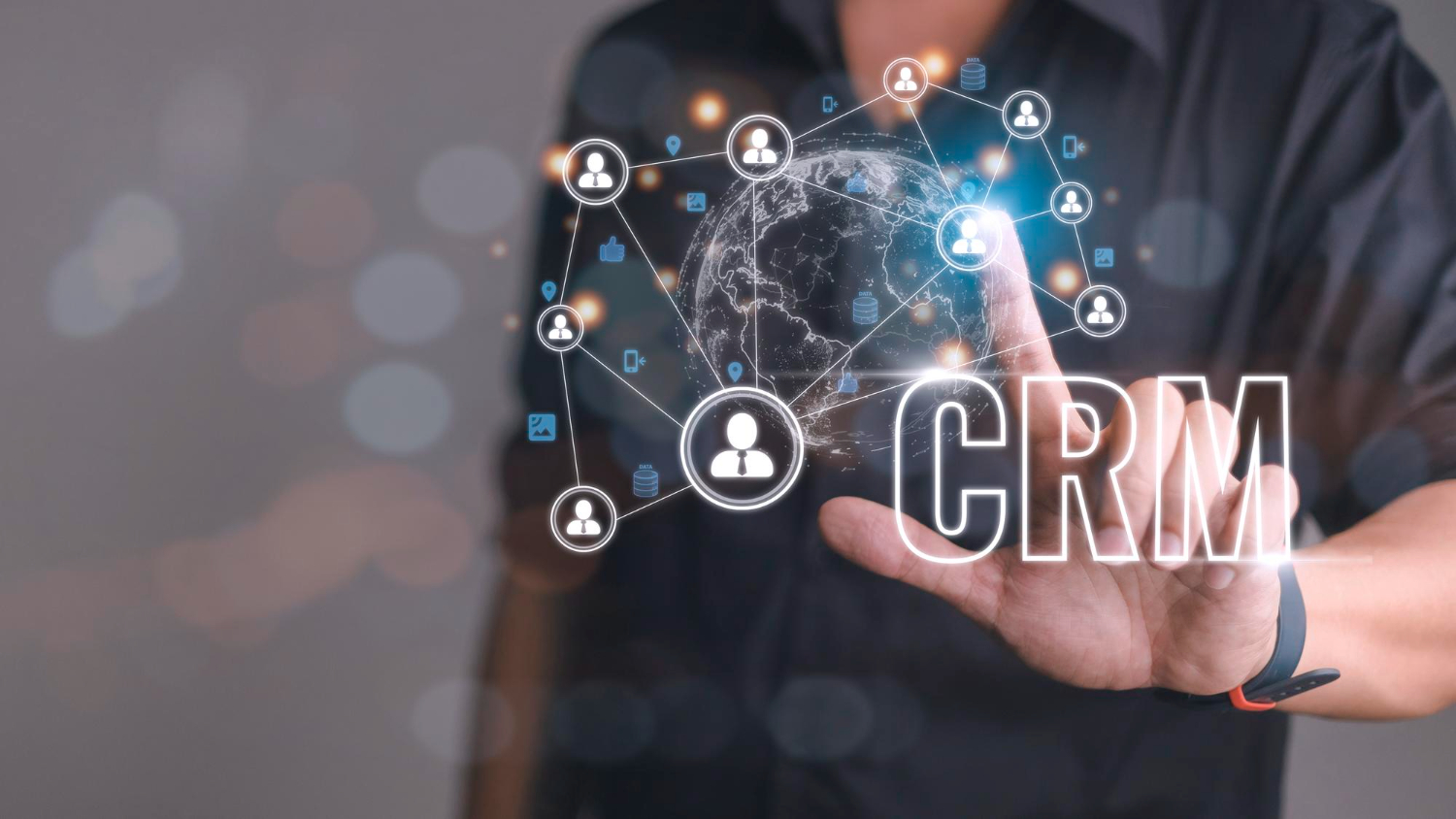Boost Your Small Retail Business: Why CRM is Your Secret Weapon
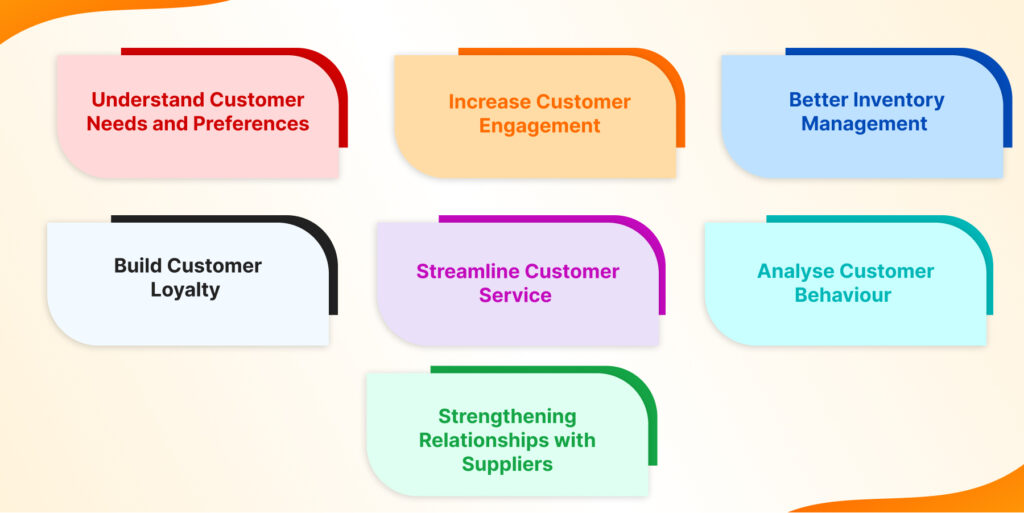
In the dynamic world of retail, staying ahead of the curve isn’t just about having the best products; it’s about understanding your customers. This is where a Customer Relationship Management (CRM) system steps in, transforming the way small retail businesses interact with their clientele. Forget spreadsheets and scattered notes – a CRM system is your all-in-one solution for building lasting relationships, driving sales, and fostering customer loyalty. In this comprehensive guide, we’ll delve into the world of CRM for small retail businesses, exploring its benefits, features, and how to choose the perfect system for your needs. Get ready to revolutionize your business and connect with your customers like never before.
Why Your Small Retail Business Needs a CRM
The retail landscape has changed dramatically. Today’s consumers expect personalized experiences, seamless interactions, and brands that understand their needs. Without a CRM, small businesses often struggle to meet these expectations. Here’s why a CRM is crucial for your success:
- Enhanced Customer Understanding: A CRM centralizes customer data, providing a 360-degree view of each customer. This includes purchase history, preferences, contact information, and communication logs.
- Improved Customer Service: With instant access to customer information, your team can provide faster, more personalized support, resolving issues efficiently and exceeding expectations.
- Increased Sales & Revenue: CRM systems enable targeted marketing campaigns, personalized product recommendations, and efficient lead nurturing, leading to more sales and a higher return on investment.
- Streamlined Operations: Automate repetitive tasks, such as data entry and follow-up emails, freeing up your team to focus on more strategic initiatives.
- Data-Driven Decision Making: Gain valuable insights into customer behavior, sales trends, and marketing performance, enabling you to make informed decisions that drive growth.
- Better Customer Retention: By building stronger relationships and providing exceptional service, a CRM helps you retain customers and foster loyalty.
Key Features of a CRM for Small Retail Businesses
Not all CRM systems are created equal. When choosing a CRM for your small retail business, look for these essential features:
1. Contact Management
At the heart of any CRM is contact management. This feature allows you to:
- Store and organize customer contact information, including names, addresses, phone numbers, and email addresses.
- Segment customers based on demographics, purchase history, and other criteria.
- Track interactions with customers, such as emails, calls, and meetings.
2. Sales Automation
Sales automation tools streamline your sales process, helping you close deals faster and more efficiently. Key features include:
- Lead management: Capture and track leads from various sources.
- Sales pipeline management: Visualize your sales process and track deals as they move through different stages.
- Automated follow-up: Set up automated email sequences and tasks to nurture leads and stay in touch with customers.
3. Marketing Automation
Marketing automation tools help you create and manage targeted marketing campaigns. Key features include:
- Email marketing: Design and send email newsletters, promotional offers, and transactional emails.
- Segmentation: Segment your audience based on demographics, purchase history, and other criteria to deliver personalized messages.
- Campaign tracking: Track the performance of your marketing campaigns and measure your return on investment.
4. Customer Service & Support
CRM systems can improve your customer service by:
- Providing a centralized platform for managing customer inquiries and complaints.
- Tracking customer service interactions.
- Providing self-service options, such as knowledge bases and FAQs.
5. Reporting & Analytics
Reporting and analytics tools provide valuable insights into your sales, marketing, and customer service performance. Key features include:
- Sales reports: Track sales trends, identify top-selling products, and measure sales performance.
- Marketing reports: Track the performance of your marketing campaigns and measure your return on investment.
- Customer service reports: Track customer service metrics, such as response times and resolution rates.
6. Integrations
Choose a CRM that integrates seamlessly with your existing tools, such as your point-of-sale (POS) system, e-commerce platform, and accounting software. This ensures that your data is synchronized across all your systems, providing a complete view of your business.
Choosing the Right CRM for Your Small Retail Business
Selecting the right CRM is a critical decision. Here’s a step-by-step guide to help you choose the perfect system:
1. Define Your Needs and Goals
Before you start evaluating CRM systems, take the time to understand your business needs and goals. Consider the following:
- What are your primary goals for implementing a CRM? (e.g., increase sales, improve customer service, streamline operations)
- What are your current challenges? (e.g., lack of customer data, inefficient sales process)
- What features do you need? (e.g., contact management, sales automation, marketing automation)
- What is your budget?
- How many users will need access to the CRM?
2. Research and Evaluate CRM Vendors
Once you know your needs and goals, start researching CRM vendors. Consider the following:
- Read online reviews: See what other small retail businesses are saying about different CRM systems.
- Compare features: Make sure the CRM system offers the features you need.
- Consider pricing: Compare the pricing plans of different CRM systems.
- Check for integrations: Ensure the CRM system integrates with your existing tools.
- Evaluate customer support: Make sure the vendor offers excellent customer support.
3. Request Demos and Free Trials
Once you’ve narrowed down your options, request demos and free trials of the CRM systems you’re considering. This will give you a chance to:
- See the system in action: Get a feel for how the CRM system works.
- Test the features: Try out the features you need.
- Evaluate the user interface: Make sure the CRM system is easy to use.
- Ask questions: Get your questions answered by the vendor.
4. Consider Scalability
Choose a CRM system that can scale with your business. As your business grows, you’ll need a CRM system that can handle more data and users. Look for a CRM system that offers different pricing plans and features to accommodate your growth.
5. Implement and Train Your Team
Once you’ve chosen a CRM system, it’s time to implement it. This involves:
- Importing your existing customer data: Make sure your customer data is accurate and up-to-date.
- Customizing the system: Configure the CRM system to meet your specific needs.
- Training your team: Provide training to your team on how to use the CRM system.
6. Ongoing Evaluation and Optimization
Implementing a CRM is not a one-time event. Continuously evaluate your CRM system and optimize it to meet your evolving needs. This includes:
- Regularly reviewing your data: Make sure your data is accurate and up-to-date.
- Analyzing your results: Track the performance of your CRM system and measure your return on investment.
- Making adjustments: Make adjustments to the CRM system as needed.
Top CRM Systems for Small Retail Businesses
Here are some of the leading CRM systems that are well-suited for small retail businesses:
1. HubSpot CRM
HubSpot CRM is a popular choice for small businesses due to its user-friendly interface, robust features, and free plan. It offers a wide range of tools, including contact management, sales pipeline management, and email marketing. HubSpot’s free plan is particularly attractive for startups and businesses with limited budgets.
- Pros: Free plan, user-friendly interface, comprehensive features, strong integrations.
- Cons: Limited features in the free plan, can be overwhelming for beginners.
- Pricing: Free plan, paid plans start at around $45 per month.
2. Zoho CRM
Zoho CRM is a versatile CRM system that offers a wide range of features and integrations. It’s a good option for businesses of all sizes, including small retail businesses. Zoho CRM offers a free plan and various paid plans to suit different needs and budgets.
- Pros: Affordable pricing, extensive features, strong integrations, customizable.
- Cons: Can be complex to set up and configure, user interface can be overwhelming.
- Pricing: Free plan, paid plans start at around $14 per user per month.
3. Pipedrive
Pipedrive is a sales-focused CRM system that’s designed to help businesses close deals. It’s a good option for small retail businesses that are focused on sales. Pipedrive offers a user-friendly interface and a range of features, including sales pipeline management, lead management, and email integration.
- Pros: User-friendly interface, sales-focused features, strong integrations.
- Cons: Limited marketing automation features, can be expensive for small businesses.
- Pricing: Paid plans start at around $12.50 per user per month.
4. Freshsales
Freshsales is a comprehensive CRM system that offers a range of features, including contact management, sales automation, and marketing automation. It’s a good option for small retail businesses that want an all-in-one solution. Freshsales offers a free plan and various paid plans to suit different needs and budgets.
- Pros: Affordable pricing, comprehensive features, user-friendly interface, strong customer support.
- Cons: Limited integrations, can be less customizable than other CRM systems.
- Pricing: Free plan, paid plans start at around $15 per user per month.
5. Agile CRM
Agile CRM is an all-in-one CRM that offers a suite of features for sales, marketing, and customer service. It’s particularly well-suited for small businesses that need a centralized platform for managing all their customer interactions. Agile CRM is known for its ease of use and affordability.
- Pros: Affordable, easy to use, all-in-one platform, good for small businesses.
- Cons: Reporting capabilities could be more robust, some advanced features may be limited.
- Pricing: Free for up to 10 users, paid plans start at around $9.99 per user per month.
Integrating CRM with Your Point of Sale (POS) System
One of the most powerful ways to leverage a CRM for your retail business is to integrate it with your Point of Sale (POS) system. This integration allows for a seamless flow of customer data, providing a holistic view of your customer interactions and purchase history. Here’s why this integration is so valuable:
- Unified Customer Profiles: When your CRM and POS are integrated, customer data from both systems is synchronized. This means you have a single, unified view of each customer, including their contact information, purchase history, loyalty points, and communication history.
- Personalized Marketing: With a combined view of customer data, you can create highly targeted marketing campaigns. For example, you can send personalized promotions based on a customer’s past purchases, browsing history, or loyalty status.
- Improved Customer Service: When a customer makes a purchase or has a question, your staff can quickly access their complete profile, providing a more personalized and efficient customer service experience.
- Inventory Management Insights: By tracking sales data through your POS and integrating it with your CRM, you gain valuable insights into which products are most popular among certain customer segments. This can help you optimize your inventory, ensuring you have the right products in stock to meet customer demand.
- Loyalty Program Management: Integrated systems make it easier to manage loyalty programs. You can automatically award points based on purchases, track customer progress, and send personalized rewards to keep customers engaged.
- Automated Data Entry: The integration automates data entry, reducing the need for manual input and minimizing the risk of errors. This frees up your staff to focus on more important tasks, like providing excellent customer service.
To integrate your CRM with your POS system, you’ll need to choose a CRM and POS system that are compatible. Many CRM systems offer pre-built integrations with popular POS systems. Alternatively, you can use third-party integration tools or APIs to connect your systems. The specific steps for integration will vary depending on the systems you choose, so be sure to consult the documentation for your CRM and POS systems.
Tips for Maximizing Your CRM Investment
Implementing a CRM is an investment, and to get the most out of it, you need to follow some best practices:
- Clean and Accurate Data: The quality of your data is crucial. Regularly clean and update your customer data to ensure accuracy. This includes verifying contact information, removing duplicates, and correcting any errors.
- Train Your Team: Make sure your team is well-trained on how to use the CRM system. Provide ongoing training and support to ensure they are using the system effectively.
- Set Clear Goals: Define clear goals for your CRM implementation. What do you want to achieve with your CRM? Setting goals will help you track your progress and measure your return on investment.
- Use Automation: Take advantage of the automation features of your CRM system to streamline your processes and save time.
- Personalize Your Interactions: Use the data in your CRM to personalize your interactions with customers. This includes sending personalized emails, making personalized recommendations, and providing personalized customer service.
- Track Your Results: Regularly track your results and measure your return on investment. This will help you identify areas for improvement and ensure you are getting the most out of your CRM system.
- Regularly Evaluate and Adapt: The business landscape is constantly evolving. Regularly evaluate your CRM system and adapt it to meet your changing needs. This may include adding new features, integrating with new tools, or changing your processes.
The Future of CRM in Retail
The role of CRM in retail is constantly evolving, driven by advancements in technology and changing customer expectations. Here are some trends to watch:
- Artificial Intelligence (AI): AI is playing an increasingly important role in CRM, helping businesses to automate tasks, personalize customer interactions, and gain deeper insights into customer behavior. AI-powered chatbots, for example, can provide instant customer support and answer frequently asked questions.
- Mobile CRM: With the rise of mobile devices, mobile CRM is becoming increasingly important. Mobile CRM allows businesses to access their CRM data and manage their customer relationships on the go.
- Social CRM: Social CRM integrates social media data into the CRM system, allowing businesses to track customer interactions on social media and engage with customers in real-time.
- Personalization at Scale: CRM systems are becoming more sophisticated at enabling businesses to personalize their interactions with customers at scale. This includes personalized product recommendations, personalized email campaigns, and personalized customer service.
- Focus on Customer Experience: The focus of CRM is shifting from simply managing customer data to providing exceptional customer experiences. Businesses are using CRM to create seamless, personalized, and engaging experiences for their customers.
By staying informed about these trends, small retail businesses can ensure that their CRM systems are meeting the evolving needs of their customers and staying ahead of the competition.
Conclusion: Embrace CRM for Retail Success
In conclusion, a CRM system is no longer a luxury; it’s a necessity for small retail businesses that want to thrive in today’s competitive market. By implementing a CRM, you can gain a deeper understanding of your customers, improve customer service, increase sales, and streamline your operations. Choosing the right CRM system, integrating it with your existing tools, and training your team are critical steps in the process. By embracing CRM and staying up-to-date with the latest trends, you can transform your small retail business and build lasting relationships with your customers, paving the way for long-term success.
So, are you ready to take your retail business to the next level? Start exploring the world of CRM today and unlock the potential to build stronger customer relationships, drive sales, and achieve sustainable growth. The future of retail is customer-centric, and with a robust CRM system, you’ll be well-equipped to thrive.

